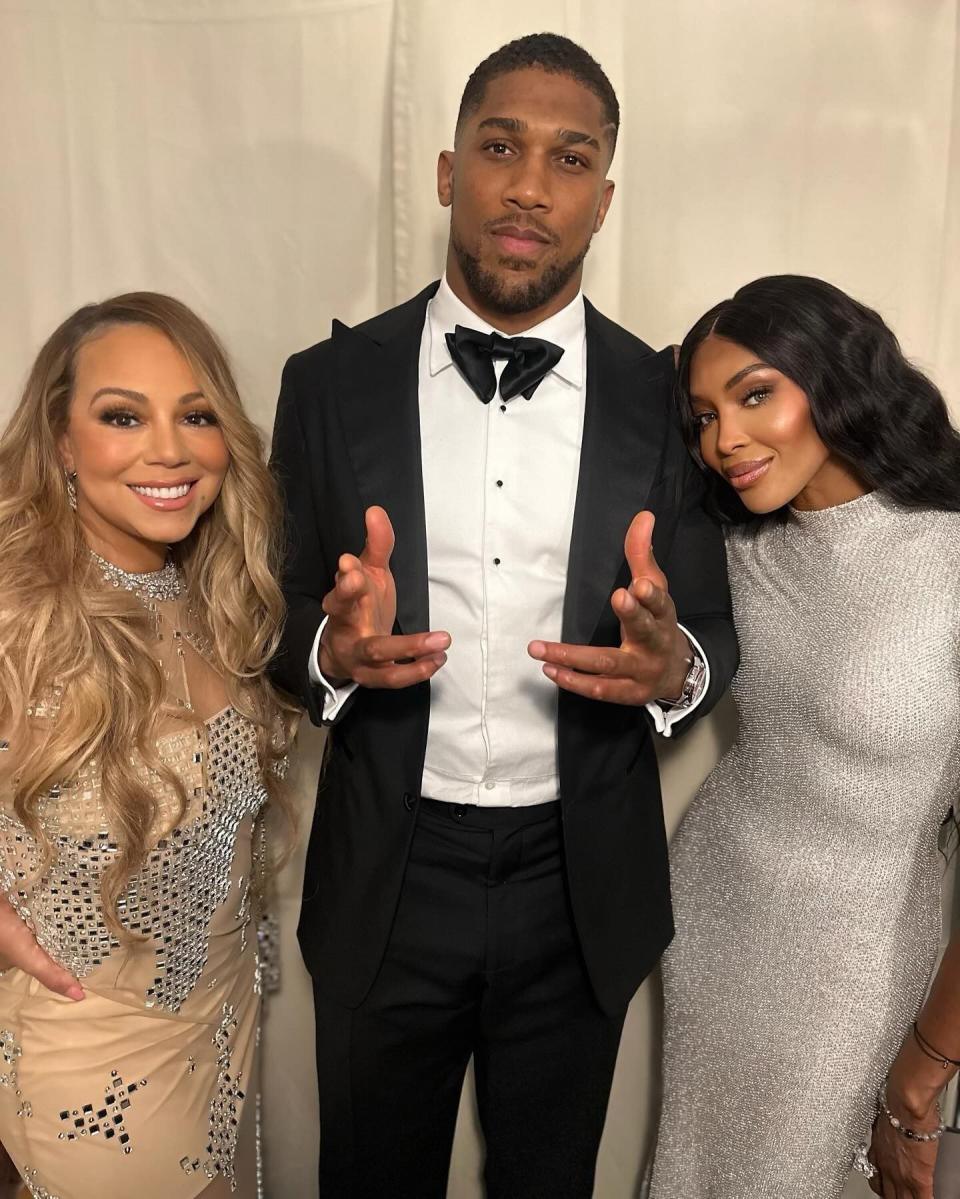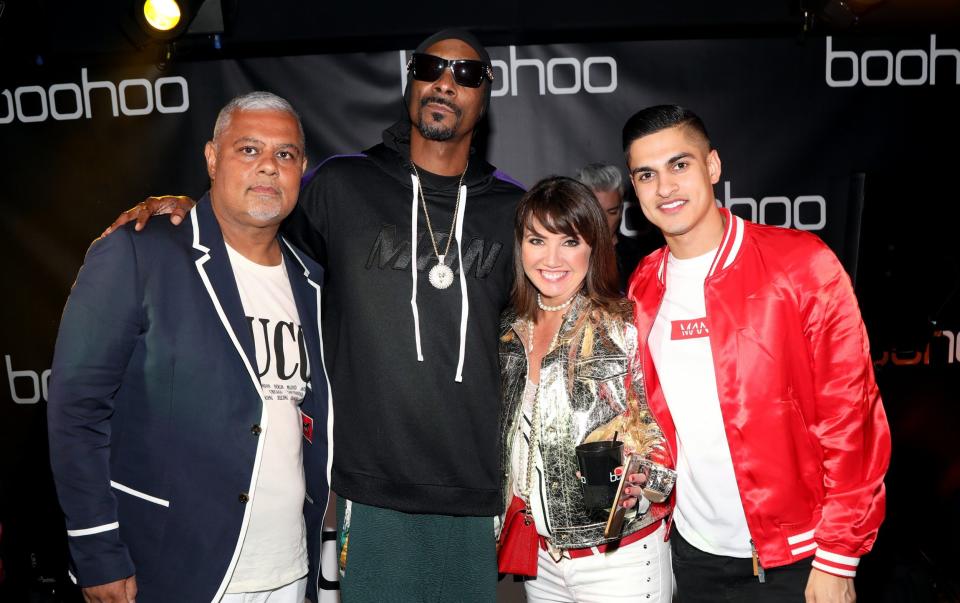It was the unequivocal symbol of success: a lavish four-day wedding on the Côte d’Azur, a guest list that included Naomi Campbell, Rio Ferdinand and Anthony Joshua, performances by Mariah Carey and Andrea Bocelli who serenaded the bride with a full orchestra as she walked down the aisle. But the results published this week make Boohoo heir Umar Kamani’s £20million extravaganza look like a handy – if expensive – distraction.
The mega brand that put fast fashion on the map appears to have entered a free fall: losses have increased by 76 percent, more than a thousand jobs have been cut and the shares are worth less than a tenth of their 2020 value.
Boohoo was co-founded in 2006 by Mamud Kamani and Carole Kane. The retailer now owns Pretty Little Thing (created by two of Kamani’s three sons, Umar and Adam), along with Debenhams, Karen Millen, Coast, Dorothy Perkins and Warehouse. The current situation is the result of “difficult market conditions caused by high levels of inflation and weakened consumer demand,” said John Lyttle, the country’s CEO. Lyttle said £125m of cost-cutting measures would follow, including firing staff who had spent the weekend watching Kamani’s cost-cutting spectacle splashed across social media.

Boohoo, an online retailer, reached its peak in 2020 when the pandemic closed its already ailing high street. In June its value was estimated at £5.2 billion – more than Marks & Spencer and Asos combined – while sales almost doubled. The ads obscured subway platforms and buses; the clothes, which sometimes cost just a pound or two, became the uniform for Love Island stars. The Kamani brothers, meanwhile, were openly reveling in their success: A-list parties, celebrities like Nicki Minaj, Jessie J and Miley Cyrus wore their clothes, Umar earned the prestigious title of Britain’s eighth most eligible bachelor, as determined by Tatler.


Boohoo “quickly cashed in on a move and a moment,” says Dana Thomas, author of Fashionopolis: The Price of Fast Fashion and the Future of Clothes, and European Sustainability Editor at British Vogue. “It had a really nice idea” – to make clothes directly in response to trends, at rock-bottom prices – but “like a firework that exploded in the sky, it will fall to the ground.”
The first signs of trouble started in the summer of 2020 when a Sunday timeThe report claimed that workers at Boohoo’s factory in Leicester were paid £3.50 per hour (the statutory minimum wage for over-25s at the time was £8.72). An independent investigation later found that the company had not deliberately profited from these practices, but revealed a series of shortcomings and ‘inadequate’ supervision. Retailers Then Asos and Zalando removed the Boohoo lines from their sites and share prices plummeted.


The company needed damage control. It was decided that they would open a new factory in Leicester in January 2022 – a multi-million pound investment expected to create almost 200 jobs in a sign of their commitment to the quality of British clothing production. They also introduced Agenda for Change – an initiative that promises fair prices and terms for suppliers. Yet this was ‘consistently undermined’, according to an undercover BBC reporter who spent 10 weeks with the company as part of a Panorama investigation. The new branch was closed at the beginning of this year.
While it may be tempting to see the demise of Boohoo as a sign that Britain is finally leaving the fast fashion industry, the dominance of Shein – the Chinese company valued at £100 billion at the end of 2022 – seems to indicate the opposite. prove. The State of Fashion 2024 report, published by Business of Fashion and McKinsey, shows that 26 percent of British consumers have shopped at Shein or Temu, an Amazon-like online retailer, in the past 12 months.
“Shein is a very tightly run company and it is ruthless in its marketing, reach and production, and I think companies like Boohoo just can’t keep up,” says Thomas. “Shein is a machine and Boohoo is a family extravaganza… every time you hear about the family and their exploits and how they live large and all their glamour, you know they spend too much time having fun and not enough time for the company.”


Louise Déglise-Favre, associate retail analyst at GlobalData, agrees that as far as Boohoo is concerned, “there is a transfer of power, actually more than a complete slowdown of the fast fashion industry.” A big part of this is the enormous manpower that China has, with Déglise-Favre citing its “production capabilities and throughput” as key tools in Shein’s arsenal.
Cheap labor costs also help bring down prices; the company uploads 6,000 new garments to its website every day. Add to that the messages of support from celebrities like Katy Perry and Rita Ora, who appeared at the 2021 Covid fundraiser, and Khloe Kardashian, and the juggernaut is only growing.
“They are very good at using social media in a way that other players like Boohoo or even Asos haven’t really done,” says Déglise-Favre. “They really managed to corner TikTok.” This power of social media, combined with search engine optimization that puts them (or Temu) at the top of the rankings every time you write a product name into Google, only further strengthens their ubiquity. “They are so hyper-visible that it is almost impossible to avoid them,” says Venetia Falconer, a fair fashion campaigner.
As the Gen Zers targeted by Boohoo, Shein and copycat sites like Cider speak out about the future of the planet – which fast fashion is harmful to – and workers’ rights, the marketing power often wins. “The fashion system functions exactly as it should. It is built so that brands can race to the bottom,” says Falconer. Quality no longer matters now that a clear attitude towards wearing clothes has emerged.
Dr. Patsy Perry, lecturer in Fashion Marketing at the Manchester Fashion Institute at Manchester Metropolitan University, says changing attitudes to the lifespan of our clothes could also spell disaster for retailers. “It’s the perennial problem of returns, where even when things are quite cheap and cheap, consumers become quite adept at using it as a hiring service and over-ordering, [and] a lot in return.” While the circular economy also appears to be growing – Vinted, a clothing resale platform, was the second most popular shopping app in Britain last year – fast-fashion is ‘often not suitable for resale’.
Few are optimistic about how things could improve. “Retail has changed so much since I was involved,” says Jane Shepherdson, previously CEO at Whistles and brand director at Topshop. “I can’t say I’m surprised [Boohoo] losing to Shein, if you only offer low prices, someone will always undercut you.
Family dividends may look less rosy given Boohoo’s current state, but there’s still a lot of money to be made by those who get their strategy right, Thomas adds. She describes Shein as “the McDonald’s of ultra-fast fashion; they’re just going to own and crush everyone else… you’re going to have Boohoos that come and go, but they’ll come and they’ll go.”